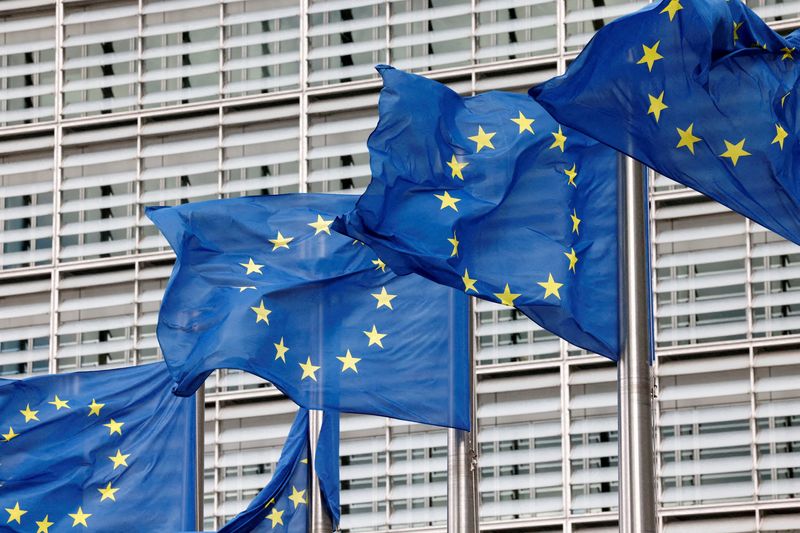By Kate Abnett and Jan Lopatka
BRUSSELS (Reuters) -European Union energy ministers on Monday agreed a gas price cap, after weeks of talks on the emergency measure that has split opinion across the bloc as it seeks to tame the energy crisis.
The cap is the 27-country EU's latest attempt to lower gas prices that have pushed citizens' energy bills higher and driven record-high inflation this year after Russia cut off most of its gas deliveries to Europe.
Ministers agreed to trigger a cap if prices exceed 180 euros per megawatt hour for three days on the Dutch Title Transfer Facility (TTF) gas hub's front-month contract, which serves as the European benchmark, EU officials and a document seen by Reuters showed.
The cap can be triggered starting from Feb. 15 2023, the document detailing the final deal showed. The deal will be formally approved by countries in writing, after which it can enter into force.
Once implemented, it would prevent any trades on the front-month to front-year TTF contracts at a price more than 35 euros/MWh above a reference level based on existing liquefied natural gas (LNG) price assessments, two EU officials told Reuters.
Germany voted to support the deal, despite having raised concerns about the policy's impact on Europe's ability to attract gas supplies in price-competitive global markets, three EU officials said.
"This is about our energy future. It's about energy security. It's about how we have affordable prices," Belgian Energy Minister Tinne Van der Straeten said on Monday.
Initially, the cap will not apply to private gas trades outside energy exchanges, although this may be reviewed once it is in force.
MONTHS OF DEBATE, WEEKS OF MEETINGS
Three officials said the Netherlands and Austria abstained. Both had resisted the cap during negotiations, fearing it could disrupt Europe's energy markets and compromise Europe's energy security.
Dutch energy minister Rob Jetten said: "Despite progress the last couple of weeks, the market correction mechanism remains potentially unsafe."
"I remain worried about major disruptions on the European energy market, about the financial implications and, most of all, I am worried about European security of supply," he added.
The EU proposal has also drawn opposition from some market participants, who have said it could cause financial instability.
The Intercontinental Exchange (NYSE:ICE), which hosts TTF trading on its Amsterdam exchange, last week said it could move TTF trading to outside of the EU if the bloc capped prices.
The January TTF gas price, the European benchmark, was down nearly 9% at 107.25 euros/MWh by 1640 GMT. The contract hit a record high of 343 euros this September.
The deal follows months of debate on the idea and two previous emergency meetings that failed to clinch an agreement among countries that disagreed on whether a price cap would help or hinder Europe's attempts to contain the energy crisis.
Roughly 15 countries, including Belgium, Greece and Poland, had demanded a cap below 200 euros/MWh - far lower than the 275 euros/MWh limit originally proposed by the European Commission last month.

Poland's prime minister said the price cap would end Russia and Gazprom (MCX:GAZP)'s ability to distort the market.
"At the recent meetings in Brussels, our majority coalition managed to break the resistance - mainly from Germany," Mateusz Morawiecki wrote on Twitter. "This means the end of market manipulation by Russia and its company Gazprom."